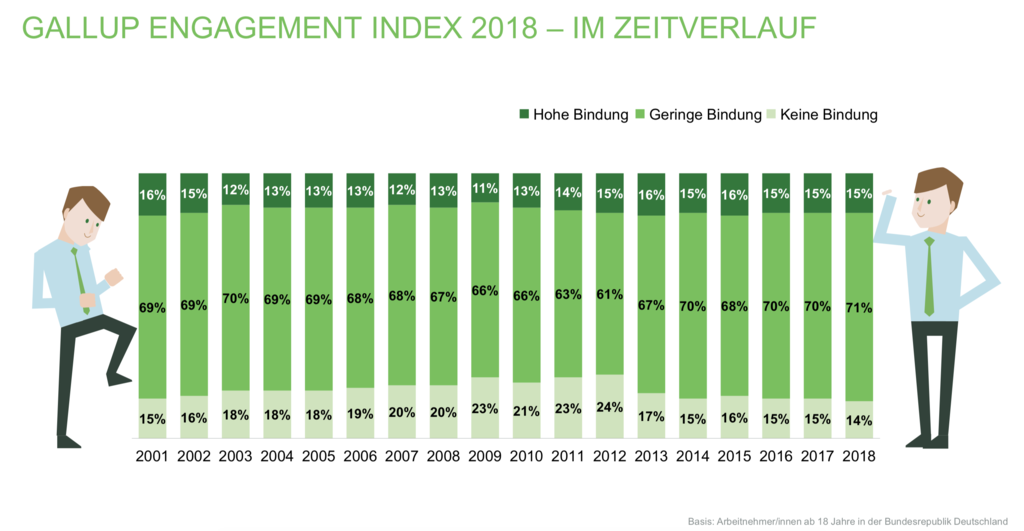Agility hinges on the prevailing assumptions about human nature in the organization. Wherever people are generally distrusted and where the belief prevails that people must be motivated to perform, agility will not thrive, but only fear, cargo cult and label fraud. The problem is not people, but demotivating and dehumanizing structures and processes.
Agility is about “individuals and interactions over processes and tools”, as the Agile Manifesto says right at the start. The message from the Principles behind the Manifesto is therefore unequivocal: “Build projects around motivated individuals. Give them the environment and support they need, and trust them to get the job done.” I consider this a suitable principle for building humane organizations in the age of knowledge work.
Agility is clearly based on Theory Y, i.e. the assumption that people are intrinsically motivated and willing to perform. Douglas McGregor described this already in 1960 in his book “The Human Side of Enterprise”, which received far too little attention, as a contrast to the previously undisputed Theory X, according to which humans are lazy by principle, avoid work where possible and must therefore be continuously controlled and motivated.
In the context of dehumanizing assembly line work, of which Frederick Winslow Taylor himself said that a trained gorilla could also do it this observation may even have been true. The explanation that man is like that in principle is certainly not true. The only valid conclusion is that people behave this way in the context of the organization. So it is not the individual who has a deficit, but the organization, because it does not enable people to engage and grow in a motivated way.

The Gallup Engagement Index shows this very soberingly year after year. In 2018, 71% of the employees in German companies worked by the rule, 14% even had already resigned mentally and only 15% really put their heart and soul into their work. To read this as confirmation of Theory X, however, would be a fatal fallacy. It simply shows that the way organizations are structured today demotivates people. Or to put it another way: Anyone who builds organizations like machines and uses (and wears out) people like cogs can only expect work by the rule. Neither motivation nor financial incentives (which, by the way, are demonstrably harmful) will help. The problem is deeper (or higher?).
The answer to the question managers so often ask of behavioral scientists “How do you motivate people?” is, “You don’t.”
Douglas McGregor
Agility means first and foremost working on the system and these dehumanizing conditions. The focus changes from roles (cogs) and processes (machines) controlled by a manager to self-organizing teamwork with an end-to-end responsibility for a hopefully motivating product. This creates identification and offers the individual more opportunity to contribute and develop his or her abilities. If you are serious about agility, you have to first get rid of the predominant assumption of human nature of Theory X, i.e. the basically unwilling human being who has to be motivated. The prime directive by Norman L. Kerth, which should decorate every office and every meeting room, provides a wonderful guideline for this:
Regardless of what we discover, we must understand and truly believe that everyone did the best job they could, given what they knew at the time, their skills and abilities, the resources available, and the situation at hand.
Norman L. Kerth, Project Retrospectives: A Handbook for Team Review






2 Comments
Absolutely brilliant Marcus, one of the best that you have written, in my humble opinion. Thank you.
Thanks, Chris. Much appreciated!